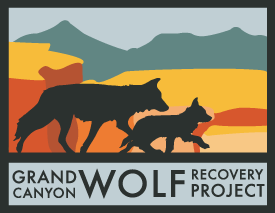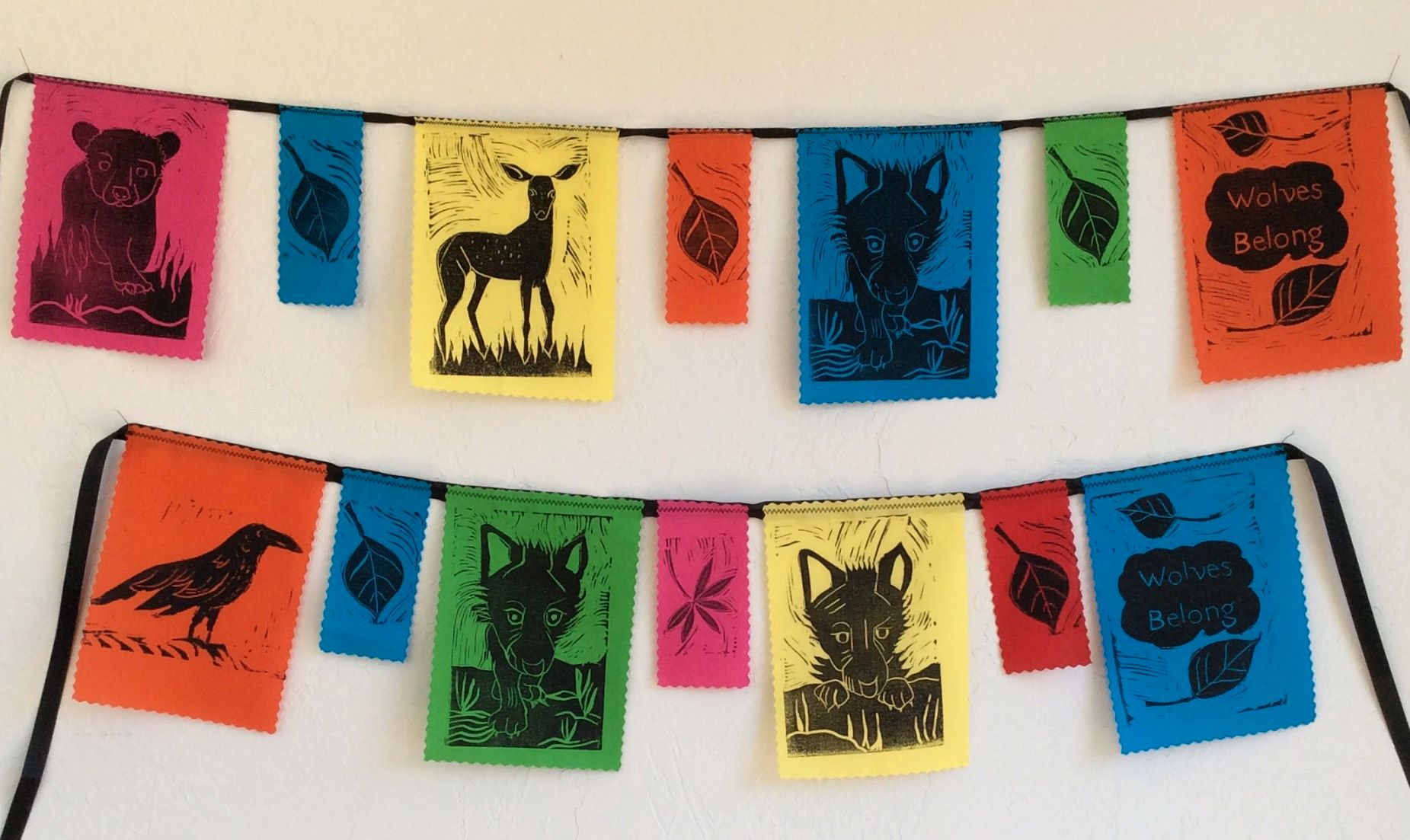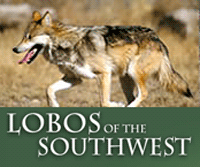Arizona Daily Star (Original) Posted June 22, 2019 Op-Ed by Maggie Howell and Cyndi Tuell
The following column is the opinion and analysis of the writers.
We couldn’t be happier that there are 12 new lobo puppies in the wildlands of Arizona and New Mexico (“Pup fostering gives genetic boost to wild Mexican wolves”) and we’re glad that cross-fostering is a successful tool for improving the genetic diversity of the current population.
Maggie Howell, the executive director of the Wolf Conservation Center, sent one of the pups, a female born on April 26, to Arizona where the pup joined the Saffel pack. We’re happy to report the pup is thriving with her new family.
Though cross-fostering on its own will not save this species and it is essential to release family groups, this year’s litters of wolves are going to be healthier and stronger as a result of the efforts of the U.S. Fish and Wildlife Service’s recovery team and the Species Survival Program captive-breeding facilities around the country that provide these valuable puppies. We’re grateful for this hard work.
However, we must not lose sight of what these wolf puppies are up against on public lands. In addition to grave threats of illegal killings, lobo families are subject to intense conflict caused by incompatible livestock grazing practices in their habitat.
The captive-breeding facilities and U.S. Fish and Wildlife Service do what they can to get genetic diversity into the wild, carefully matching whelping dates of pups and making sure human scents don’t cause the wild mothers to abandon their dens. Unfortunately, the Forest Service hasn’t been quite as willing to ensure that grazing in wolf habitat is managed for success.
Earlier this year, our organizations and allies asked national forests in the region to impose a few rules about livestock on public-lands grazing allotments within wolf habitat. These commonsense measures included removing dead, sick or injured livestock from the forests, increasing range riders to reduce wolf-livestock interactions and keeping livestock out of active denning areas. This would prevent ranchers from blaming wolves for preying on cattle at critical times when the wolves have hungry pups to feed.
It would also eliminate the economic losses of those deceased livestock to the grazing permittees. It seems like a win-win, but the agency said, “No.” The unwillingness to ensure that wolf habitat is proactively managed on our public lands in Arizona and New Mexico is in stark contrast to Forest Service offices elsewhere in the country who are readily imposing such protections.
For all the concern about how wolf recovery affects livestock, it is time we started thinking about how livestock management affects wolves, too. Managing the land for the benefit of native wildlife makes sense. Setting up some ground rules for ranching before sending these precious wolf puppies out into the wild would benefit everyone. We’re hoping the agency and the ranchers will come around.
Maggie Howell is the executive director of the Wolf Conservation Center, which provided pups for the cross-fostering. Cyndi Tuell, based in Tucson, is the Arizona and New Mexico director of the Western Watersheds Project and works to protect wildlife on wildlands in both states. Contact Cyndi at This email address is being protected from spambots. You need JavaScript enabled to view it.





